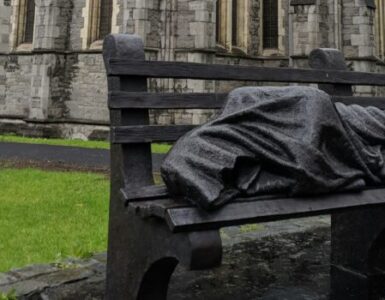There are certain passages in the Old Testament that stop me in my tracks. One such passage is in the Book of Jeremiah where the bedraggled prophet tells us that “The heart is deceitful above all things, and desperately corrupt; who can understand it?”
It is important for me to realize that Jeremiah is speaking directly to me. He is telling me about something that is very dear to me—my heart—and telling me that it is fraught with deception. My “organ of benevolence,” as Charles Dickens once described it, is fundamentally flawed. Jeremiah has handed me my X-rays and they do not look good. Nor does Matthew (15:19) paint a pretty picture of the heart when he states that “Out of the heart come evil thoughts—murder, adultery, sexual immorality, theft, false testimony, slander.”
How should I respond? Can my heart be resuscitated, rectified, purified? Is everything I think or say or write essentially unreliable? How does Saint John Henry Newman justify his motto, Cor ad cor loquitur (Heart speaking to heart)? Jeremiah had a hard time convincing certain people that they were clinging to false prophets. At the same time, he felt wholly unfit to carry out his God-commissioned task. Small wonder he recognized the deceitfulness of the human heart.
Even if my heart is pure, can I find another whose heart is equally pure? The Scottish poet William Sharp expressed this predicament most poignantly when he wrote: “Deep in the heart of summer, sweet is life in me still, But my heart is a lonely hunter that hunts on a lonely hill.” Carson McCullers turned The Heart is a Lonely Hunter into a best-selling novel and successful motion picture. Is the “I-Thou” relationship, we may ask, an illusion? Does the heart-to-heart communion always elude even those who hunt for it?
Socrates did not read The Book of Jeremiah, but he wrestled and grappled with the same questions: “Who Am I?” and “How can I dialogue with others?” The sophists he encountered were no doubt similar to the misled individuals with whom Jeremiah had to contend. The Gadfly of Athens resorted to reason in order to distinguish truth from deception. Jeremiah relied on God.
The Pseudo-Macarius speaks about the heart with a glimmer of hope: “The heart itself is but a small vessel, yet dragons live there, and there are many lions; there are poisonous beasts and all the treasures of evil. But there too is God, the angels, the life and the kingdom, the light and the apostles, the heavenly cities and the treasures of grace—all things are there.”
I will balance the words of Jeremiah with those of the Pseudo-Macarius. I should not be presumptuous. Beasts and dragons prowl in my heart. I must not listen to them but to my better angels, who are God’s beneficent emissaries. For the Christian, prayer is as important as reason was for Socrates. Jeremiah is telling me to be careful, to pray, to silence my ego, and not to lose hope, because God is always available. We can pray as David did: “Create in me a clean heart, O God, and renew a right spirit in me” (Psalm 51:10). We can all unite our hearts, then, with the Sacred Heart of Jesus.
✠
Photo by Lespinas Xavier on Unsplash















